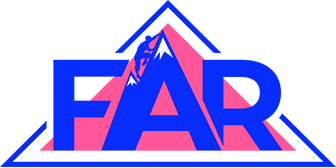What Is
Addiction Counseling?
Addiction counseling is people who provide a support system for individuals recovering from an addiction. Whether the individual is having drug and alcohol issues, eating disorders, or other behavioral issues, counseling helps.
How Does
Addiction Therapy Work?
There are multiple addiction therapy options but they all fulfill the same goal which is to help an individual recover. This could be by:
- Stopping the use of alcohol and drugs
- Maintaining abstinence from a substance
- Addressing addiction and mental health issues
- Developing alternate coping mechanisms for stress
- Building self-esteem
Substance abuse can disrupt the way an individual thinks and behaves. Individuals can become more impulsive, disrupt their ability to focus, and hinder their learning and memory. Addiction therapy allows the individual to assess their attitudes, and learn how to react to circumstances, how to relate to people, and overcome their disordered thinking process from the drug or alcohol.
There are many benefits to addiction counseling that helps those who are addicted in countless ways. Some of these benefits include:
- Having a new perspective on things
- Coping strategies
- Support
- Advice on creating and maintaining relationships
The role of an addiction counselor in recovery is to help individuals by creating a therapeutic alliance with their patients. This trust between the individual and counselor gives the individual the ability to feel vulnerable and work effectively to solve their problems. They must:
- Make sure their patient understand that they are interested in their well being
- Are focused and attentive during sessions
- Showing and telling their patients that they empathize with their issues
- Recognizing and communicating the foundational issues for recovery
During an addiction counseling session, an individual can expect to feel comfortable talking to their therapist about any hardships they are experiencing and discussing anything that is on their mind in order to recover.
The therapist will encourage the individual’s recovery by helping them rethink their approaches to motivation. They would help the individuals develop a relapse prevention plan and listen to them while communicating how they can help the individual.
Addiction Therapy Types FAR Offers:
There is a plethora of addiction therapy and they all work differently to help an individual recover. At Focused Addiction Recovery here are the therapy options we provide:
Cognitive-behavioral therapy (CBT) focuses on the idea that psychological issues like addiction are the roots of harmful thinking patterns, negative behaviors, and bad coping techniques. It pushes individuals to asses what is triggering their urge to abuse drugs and alcohol. After doing this they figure out an alternative way to cope and avoid these triggers. CBT helps individuals develop strategies to deal with cravings, stressful situations, or triggers that may occur outside of rehab.
Dialectical behavioral therapy (DBT) works on validating and accepting uncomfortable feelings. It helps individuals with border personality disorder (BPD), depression, anxiety disorders, and substance use disorders (SUD). It is used to promote abstinence and reduce the length and adverse impact of relapses.
Individual therapy focuses on the emotional and psychological issues that an individual is facing. When these individuals choose to trust the therapist and allow themselves to participate in it they can progress drastically. This type of therapy is a way for the individual to better understand themselves and recover.
The therapists will take time to understand the situation in terms of the nature of addiction and how it has impacted the individual’s health, and formulate a recovery plan. This type of therapy focuses on enhancing the mind, finding triggers, and improving relationships/ communication skills.
Group therapy is a therapy that involves two or more individuals receiving therapy at the same time. In group therapy, individuals take turns discussing their issues, feelings, experiences, and goals. It allows the individual to benefit from interactions with other individuals and not just from receiving input from the therapist. It gives the individuals the opportunity to open up, knowing that every other group member has undergone something similar.
Family therapy addresses the interaction between family dynamics and patterns of drug and alcohol use. It allows the family and individual to face adverse situations that are preventing the well-being of the individual by restoring balance and comprehending any misunderstandings. Families can unknowingly be hurting an individual with substance use disorder. By providing their support, they can play a significant role in an individual’s recovery.
Holistic therapy works on the individual’s mental and physical health, as well as their spiritual health. It is an integration of an individual’s mind, body, emotions, and spirit, The entire individual is addressed in treatment not just an aspect of them. Holistic therapy is designed to affect the individual’s overall well-being rather than their symptoms or behavior.
Start Your Journey Free From Addiction At
Focused Addiction Recovery
 Here at Focused Addiction Recovery, we offer addiction treatment programs and therapeutic options personalized for each individual’s unique needs. Whether you choose CBT, DBT, individual, group, family, or holistic therapy we are here to help. FAR offers telehealth as a treatment service for individuals who qualify; therefore, we are open to taking in individuals who are out of state. We understand that everyone has a different way they would prefer to get treated and we have that. Contact Us.
Here at Focused Addiction Recovery, we offer addiction treatment programs and therapeutic options personalized for each individual’s unique needs. Whether you choose CBT, DBT, individual, group, family, or holistic therapy we are here to help. FAR offers telehealth as a treatment service for individuals who qualify; therefore, we are open to taking in individuals who are out of state. We understand that everyone has a different way they would prefer to get treated and we have that. Contact Us.

